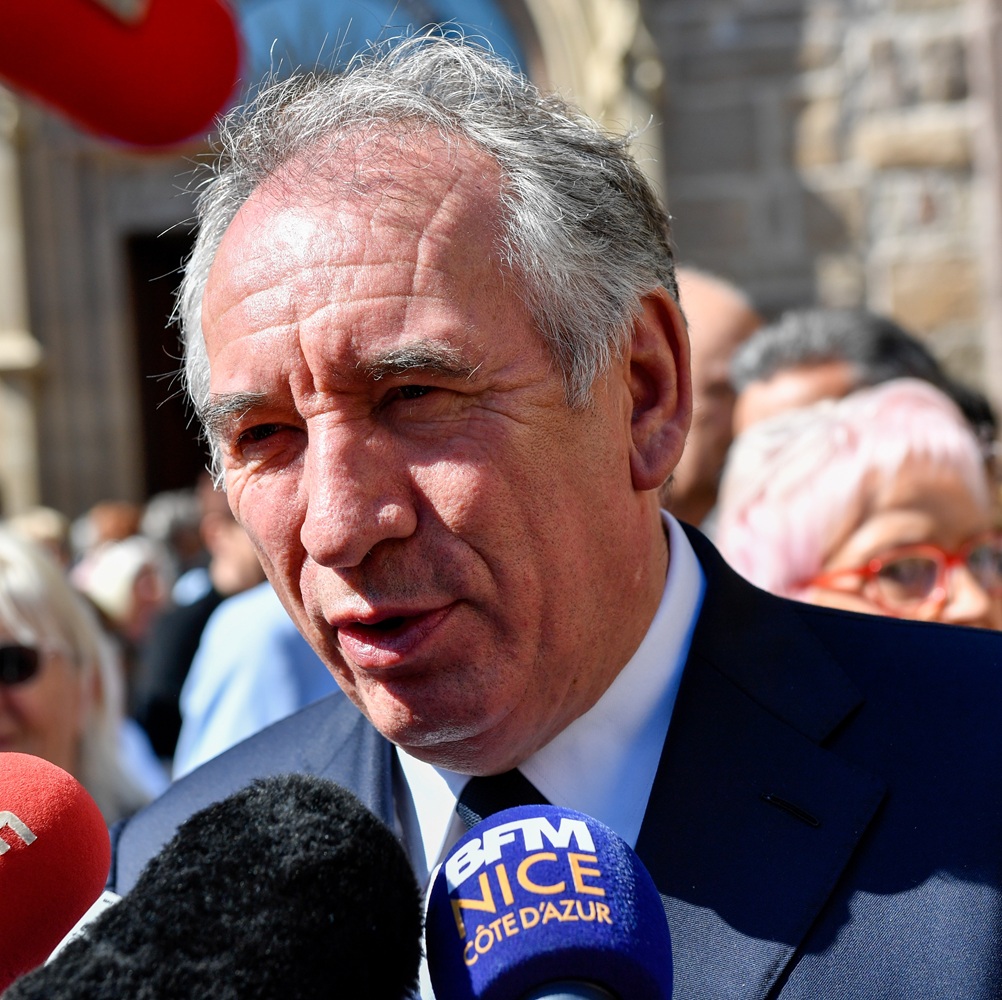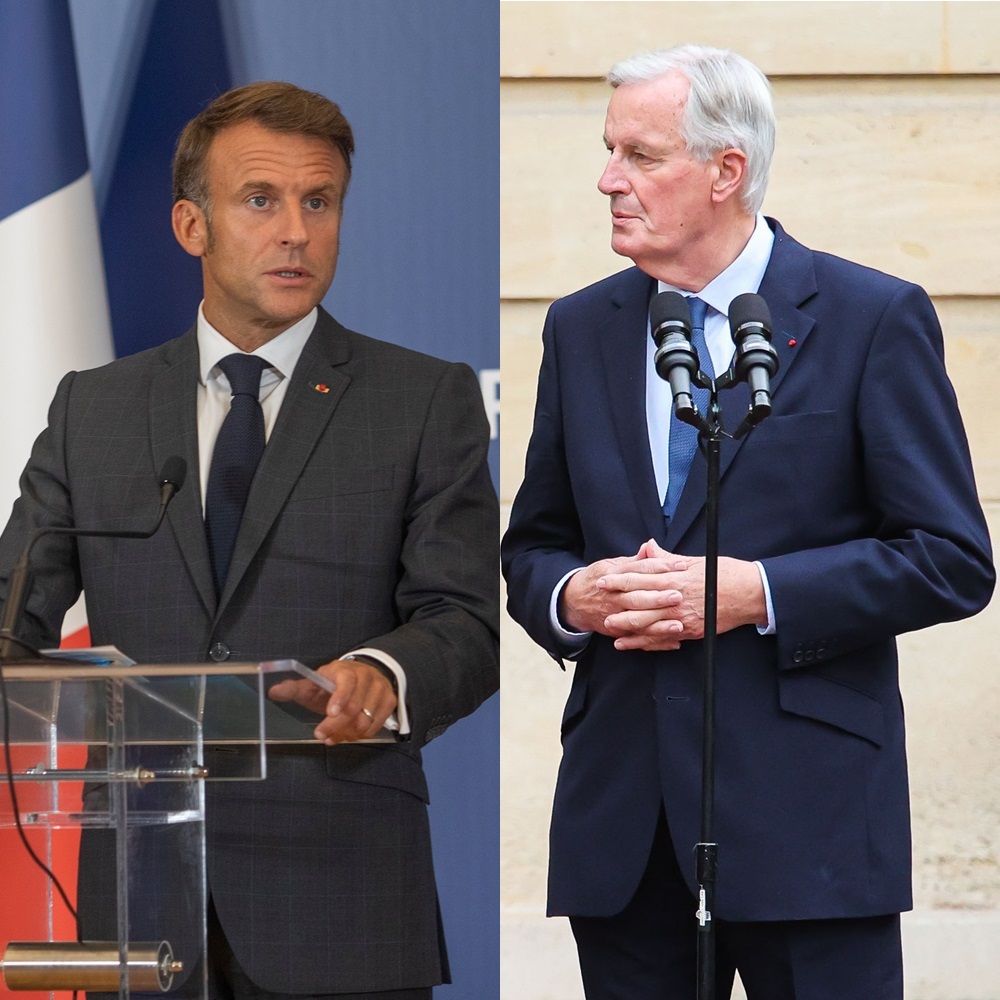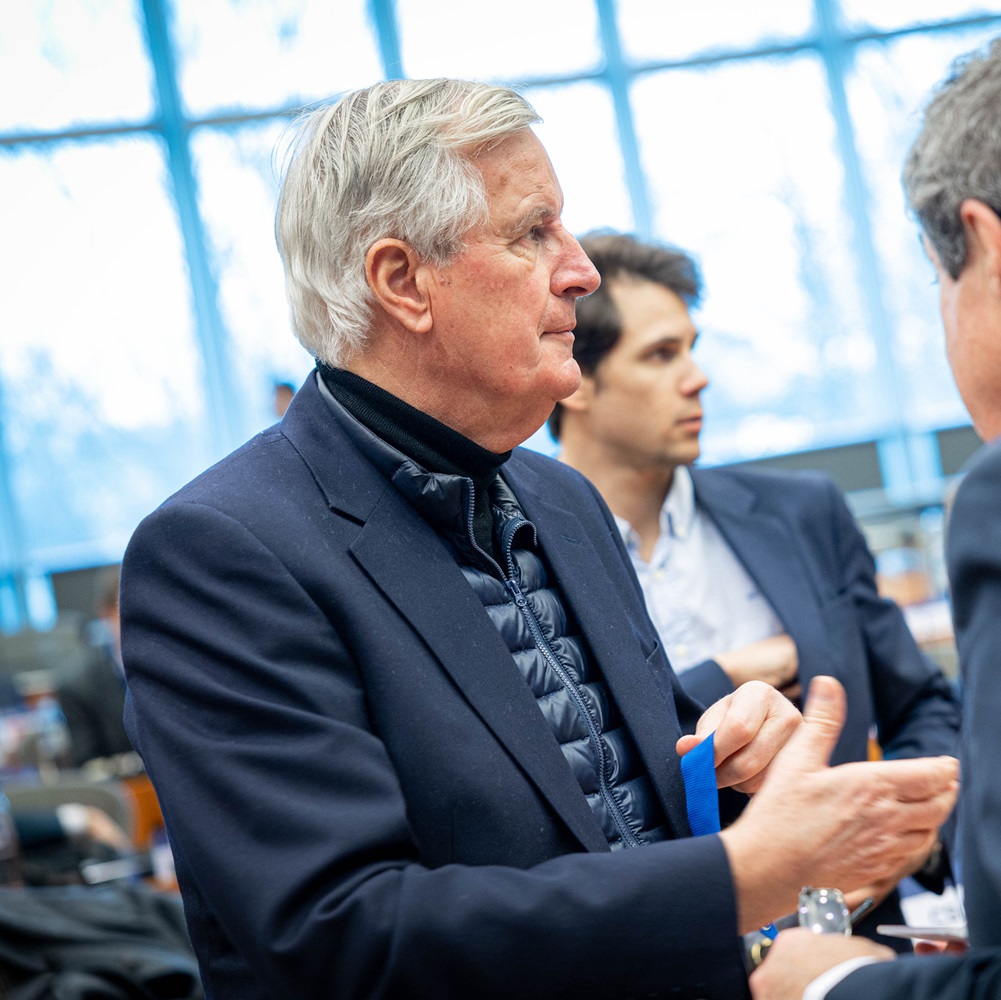
Macron clings to continuity and relies on the wildcard of the socialists and the far-right
by Enric Bonet
Leer en español In Deutsch lesen Gap اقرأ بالعربية Lire en français Читать на русском The French president appoints veteran centrist François Bayrou as prime minister after Bayrou threatened to withdraw his party from the presidential coalition. Strong with the weak and weak with those at his own level — quite small, in fact. The French president, Emmanuel Macron, displayed this behavior on Friday at the start of a new chapter in the endless decline of his presidency. The head of state, who in the past acted ruthlessly against union protests (2023) and the Yellow Vest Revolt (2018), gave in to the pressures of veteran centrist François Bayrou. The leader of the MoDem Party managed to impose himself as head of the Executive against Macron's initial intentions. It was a morning worthy of an episode of the series ‘Baron Noir’. A true reflection of the agony of the presidential model of the Fifth Republic. Nine days after the successful motion of no confidence against the conservative government of Michel Barnier, the Élysée announced that the appointment would take place on Friday morning. The president had already missed his initial deadline to make the appointment by Thursday night, and prolonging the uncertainty would have further heightened the sense of ridicule. On the same Friday, at five in the morning, Macron called Bayrou, whose name had been at the top of all predictions to replace the former European Brexit negotiator, and told him he would not be chosen, according to the TF1 network. That call led to a heated meeting of nearly two hours at the presidential headquarters. During the meeting, Bayrou threatened Macron with withdrawing his party's (MoDem) deputies from the presidential coalition if he was not chosen as prime minister. “I joined you to do great things, not small ones. (…) It’s simple: if you don’t appoint me, I will withdraw my people”, warned the three-time presidential candidate (2002, 2007, and 2012), according to ‘Le Monde’. Such a move would have dealt a severe blow to an already weakened Macronism, which holds only 164 deputies (out of 577) and represents the second-largest bloc in the National Assembly, behind the left (192). Macron gave in at the end of a tumultuous morning. Instead of his preferred choices when he woke up that day — Sébastien Lecornu (Defense Minister) or Roland Lescure (former Industry Minister) — he opted for the 73-years-old Bayrou. Interestingly, the French head of state, who arrived at the Élysée in 2017 promising to revitalize the Fifth Republic, has now moved from appointing the oldest prime minister in that regime's history (Barnier) to another of the same age. Both are career politicians with 40-year trajectories. And with the added complication in the case of the newly appointed Prime Minister, who is burdened by a corruption case set to be retried on appeal in 2025. Less neoliberal than Macron "I don't think Macron is thrilled about facing the final stretch of his presidency with a prime minister like Bayrou, who has a tough and complicated character," explains political scientist Virginie Martin about the mayor of Pau, a town of 80,000 inhabitants in southwestern France. His appointment as head of the executive reflects, on one hand, the internal tensions within Macronism, which is clearly in decline. On the other hand, it shows the president's stubbornness in retaining control of the government rather than accepting an opening of the Executive towards the left-wing New Popular Front (NFP), which narrowly won the snap elections on July 7. Although Macronism obtained less than 15% of the votes in the European elections and came third in the first round of the legislative elections with 20%, it does not relinquish power. It takes advantage of parliamentary fragmentation into three nearly irreconcilable blocs (the left, Macronist center-right, and the far-right) and the extensive powers granted to the president by the Constitution. “It seems incomprehensible to me from an electoral standpoint,” criticized Marine Tondelier, secretary-general of the Greens, regarding the appointment of one of Macron’s earliest significant allies. The current president and the leader of MoDem joined their political paths in February 2017. At that time, they reached an agreement that led to Bayrou’s withdrawal from that year’s presidential campaign, which proved key to Macron’s victory in May. Just a few weeks before that pact, the veteran leader had made harsh remarks about his future ally: “It won’t work (…), because the French will see what’s behind this hologram. There is an attempt by financial powers that are no longer satisfied with economic control but also want political power.” Since then, relations between the two have never been entirely smooth. As he did again this Friday, Bayrou has repeatedly threatened to withdraw MoDem from the presidential coalition, which also includes Macron’s party, ‘Renaissance’, and Horizons. “He is an heir to the Christian democratic tradition. He is neither a Thatcherite liberal nor an anarcho-liberal — in the pure style of Javier Milei,” explains political scientist Jean Petaux regarding the main ideological difference between Bayrou and Macron, whose political DNA is more influenced by neoliberal ideas. Budgets defined by austerity "I am aware of the Himalaya we have before us," Bayrou stated on Friday afternoon during his inauguration ceremony at Matignon. He was referring to France's delicate financial situation, as the country is set to close the year with a public deficit exceeding 6%, more typical of a period of severe crisis. His first test will be the drafting and adopting the 2025 budget law. As Barnier previously attempted, the newly appointed prime minister will likely try to address the deficit with budgets marked by harsh austerity — his predecessor had planned a €40 billion cut in public spending. He may attempt to soften this by introducing some form of special tax on the wealthiest. The former Brexit negotiator “had already proposed a temporary tax on the windfall profits of large corporations. During the parliamentary debate, the left and Bayrou’s party deputies agreed to approve an amendment proposing that this tax be applied for more than two years,” recalls Petaux. The traditional right-wing party, ‘Les Républicains’ (LR), will likely support the approval of the public budget. Despite his strained relationship with former President Nicolás Sarkozy, who still holds some influence over LR, Bayrou may convince the post-Gaullist party to remain in the government, which it joined in September under Barnier. Key figures in the current government — Sarkozy ally Rachida Dati (Culture), conservative Catherine Vautrin (Territories), and the xenophobic Bruno Retailleau (Interior) — are confident they will retain their positions. A non-aggression pact with the Socialists? In contrast, ‘La France Insoumise’ (aligned with Spanish Parties ‘Podemos’ or ‘Sumar’), which represents the Popular Front party with the largest number of deputies, announced a motion of no confidence against Bayrou. “If they want to keep the same people in key positions, including Retailleau in Interior, and do nothing about pensions, ecology, and tax justice, I see no other option but censure,” stated the ecologist Marine Tondelier. Her party is divided but seems to lean toward outright opposition, like ‘La France Insoumise’. The big question is the position of the Socialist Party (PS) and the far-right National Rally (RN). Their stance will determine whether Bayrou lasts longer in Matignon than Barnier, who was censured less than three months after his appointment. The center-left party stated that it “will not participate in the government and will remain in opposition.” However, it distanced itself from its ‘La France Insoumise’ allies by opening the door to a non-censure agreement. Their conditions include the prime minister refraining from using Article 49.3, which allows laws to be passed without a parliamentary vote and contributed to Barnier's downfall. They also demanded that he abandon plans to push a tough immigration law early next year. "I feel that there are many false moves by the Socialists," says Martin, a professor at Kedge Business School. Their distancing from ‘La France Insoumise’, which is pursuing an uncertain strategy aimed at forcing Macron's resignation and preparing for early presidential elections, is due to "the pre campaign for the 2026 municipal elections" as well as "the Socialist Party's congress next year." The party's secretary-general, Olivier Faure, a supporter of unity among progressive forces, risks losing his position at that internal summit due to the offensive from the party's right wing, led by former President François Hollande and the mayor of Paris, Anne Hidalgo. A cordial relationship with Le Pen If Bayrou ultimately fails to secure a non-aggression pact with the Socialists, he will have the option of Marine Le Pen. The National Rally (RN) welcomed the appointment of the MoDem leader with apparent satisfaction, as he maintains a somewhat cordial relationship with Le Pen’s movement. “In 2022, he lent his signature to Le Pen so she could run in the presidential elections,” arguing for political pluralism. “He also proposed the creation of a ‘bank for democracy’ to address the far-right’s financing issues, which led them to seek funds (up to 11 million euros) from a Russian bank close to the Kremlin,” Martin recalls. Nevertheless, the major point of commonality between Bayrou and Le Pen is their legal troubles. Despite being one of Macron’s earliest allies, Bayrou has played a secondary role over the past seven years due to his alleged involvement in a scheme involving fake assistants in the European Parliament. The Paris Court acquitted him in early 2024, but it did convict eight MoDem officials and imposed a €400,000 fine on the party. Additionally, the prosecution appealed against the ruling, and the case will be retried on appeal. It is a scheme very similar to the one for which the far-right leader was tried this past fall. His verdict is expected on March 31, and he faces a possible five-year disqualification with immediate effect. This could trigger a political earthquake in France. The future of the Fifth Republic's crisis will depend not only on Parliament but also on the courts. This article was translated and licensed under CC BY-SA 3.0 ES (Atribución-CompartirIgual 3.0 España)










